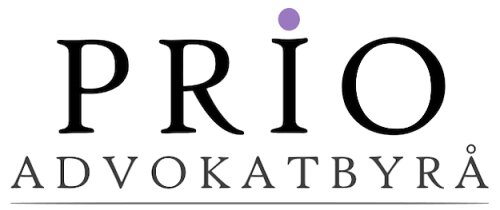Best White Collar Crime Lawyers in Stockholm
Share your needs with us, get contacted by law firms.
Free. Takes 2 min.
List of the best lawyers in Stockholm, Sweden
About White Collar Crime Law in Stockholm, Sweden
White Collar Crime refers to financially motivated, non-violent crime typically committed by business and government professionals. In Stockholm, Sweden, these crimes often include embezzlement, fraud, insider trading, bribery, and money laundering. The legal framework in Sweden is robust, involving various laws and regulations to monitor, investigate, and prosecute such crimes. Given the complexity and the potentially severe consequences of white collar crimes, including heavy fines and imprisonment, understanding your legal rights and the judicial process is crucial.
Why You May Need a Lawyer
There are several situations where you may require legal help in the realm of White Collar Crime, including:
- If you are under investigation by law enforcement agencies for suspected White Collar Crime.
- If you have been accused of committing a White Collar Crime.
- If your business is facing compliance issues or regulatory investigations.
- If you are a victim of White Collar Crime and need to seek restitution.
- If you are involved in internal corporate investigations or need advice on internal controls and compliance.
An experienced lawyer can help you navigate through these complex legal situations, protect your rights, defend against the charges, and manage the intricacies of legal proceedings.
Local Laws Overview
In Stockholm, White Collar Crime is governed primarily by the Swedish Penal Code, which outlines the various offenses and relevant penalties. Key aspects relevant to White Collar Crime include:
- Fraud (Bedrägeri): Involves deceiving someone to gain financial benefits. Penalties range from fines to imprisonment.
- Embezzlement (Förskingring): Misappropriating funds entrusted to one's care. Penalties can be severe, especially if large sums are involved.
- Bribery (Mutbrott): Offering, giving, receiving, or soliciting something of value as a means to influence the actions of an individual holding a public or legal duty. Punishments can include imprisonment for up to 6 years.
- Insider Trading (Insiderhandel): Trading a public company's stock or other securities by individuals with access to non-public information. This is heavily regulated, and violations can result in substantial fines and imprisonment.
- Money Laundering (Penningstvätt): The process of concealing the origins of money obtained illegally. Convictions can lead to long-term imprisonment.
It's important to consult with an expert in local laws to understand the specific statutes and legal nuances applicable to your case.
Frequently Asked Questions
1. What constitutes a White Collar Crime?
White Collar Crime generally encompasses non-violent, financially motivated crimes like fraud, embezzlement, bribery, and money laundering, usually committed by professionals in business or government roles.
2. What should I do if I am accused of a White Collar Crime?
If accused, it’s essential to seek legal counsel immediately to understand the charges, protect your rights, and plan a defense strategy.
3. How severe are the penalties for White Collar Crime in Stockholm, Sweden?
Penalties vary depending on the crime's nature and severity but can include substantial fines and long-term imprisonment.
4. Can a White Collar Crime affect my professional life?
Yes, being charged or convicted of a White Collar Crime can significantly impact your career, potentially leading to job loss and difficulties finding future employment.
5. How can a lawyer help in a White Collar Crime case?
A lawyer can provide critical guidance, represent you in court, negotiate with prosecutors, and help in mitigating potential penalties.
6. What is the difference between civil and criminal cases in White Collar Crime?
Criminal cases involve prosecution by the state and can lead to imprisonment and fines, while civil cases involve disputes between individuals or organizations, typically seeking financial compensation.
7. How long do investigations into White Collar Crimes usually take?
The duration of investigations can vary widely depending on the case's complexity, sometimes taking months or even years.
8. What is insider trading, and why is it illegal?
Insider trading involves trading a company's stock based on non-public, material information, giving an unfair advantage and violating principles of market fairness.
9. Are corporate executives the only ones who can commit White Collar Crimes?
No, while executives are often implicated, anyone in a position of trust or authority, including employees at various levels, can commit White Collar Crimes.
10. What kinds of defenses are available in White Collar Crime cases?
Defenses can include lack of intent, entrapment, mistaken identity, lack of evidence, or proving actions were lawful business practices. A lawyer can help determine the best defense strategy for your case.
Additional Resources
For more information and assistance, consider reaching out to the following resources:
- The Swedish National Economic Crimes Bureau (Ekobrottsmyndigheten) - for information and support related to economic crimes.
- The Swedish Bar Association (Advokatsamfundet) - to find qualified lawyers specializing in White Collar Crime.
- The Swedish Police Authority (Polismyndigheten) - for reporting crimes and seeking legal assistance.
- Legal aid organizations - for support and guidance if you cannot afford private legal counsel.
Next Steps
If you need legal assistance in a White Collar Crime matter, consider taking the following steps:
- Contact a specialized White Collar Crime lawyer to discuss your case in detail.
- Gather any relevant documents, communications, and evidence related to the case.
- Do not speak to investigators or prosecutors without legal representation present.
- Understand your rights and obligations under the law by consulting with your lawyer.
- Stay informed about your case's progress and actively participate in building your defense strategy.
Taking these proactive steps can help you navigate complex legal challenges effectively while safeguarding your rights and interests.
Lawzana helps you find the best lawyers and law firms in Stockholm through a curated and pre-screened list of qualified legal professionals. Our platform offers rankings and detailed profiles of attorneys and law firms, allowing you to compare based on practice areas, including White Collar Crime, experience, and client feedback.
Each profile includes a description of the firm's areas of practice, client reviews, team members and partners, year of establishment, spoken languages, office locations, contact information, social media presence, and any published articles or resources. Most firms on our platform speak English and are experienced in both local and international legal matters.
Get a quote from top-rated law firms in Stockholm, Sweden — quickly, securely, and without unnecessary hassle.
Disclaimer:
The information provided on this page is for general informational purposes only and does not constitute legal advice. While we strive to ensure the accuracy and relevance of the content, legal information may change over time, and interpretations of the law can vary. You should always consult with a qualified legal professional for advice specific to your situation.
We disclaim all liability for actions taken or not taken based on the content of this page. If you believe any information is incorrect or outdated, please contact us, and we will review and update it where appropriate.
















